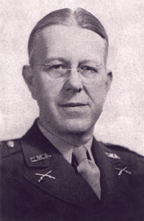|

|
Colonel Ragsdale
applied to join the CMA faculty in 1931 and did so as the President
of the school, a position he held for 31 years. Colonel Ragsdale
launched the most successful years of Columbia Military Academy,
solidifying a faculty that included such notable members as William
O. Batts, Thomas R. Fishburne, J.B. Gracy, Clyde Wilhoite, E. Blythe
Hatcher, W.D. Prickett, John B. Thomas, Earnest P. Hart, Thomas
G. Jones and Earl G. Sparkman. Members of the faculty that Colonel
Ragsdale put in place were instrumental in leading CMA from the
early 1930s until the 1970s. Colonel Ragsdale devoted his life to shaping the minds and characters
of young men. During his time at CMA he endeavored to maintain high
standards of scholarship and stern, though just, discipline. He
constantly strived to instill in the cadets an awareness of the
importance of the development of scholarship and good character
in preparation for a successful and useful life. He exerted a lasting
influence on the life of every student that attended CMA during
his tenure. Colonel Ragsdale retired as President of CMA in 1962 but remained
with the school as President Emeritus until 1964, thus serving the
cadets at Columbia Military Academy for thirty-three years. His
influence on cadets is remembered to this day; the impact he had
on CMA and the legacy he left behind were unparalleled. "Of high ideals and virtue was his speech; And gladly would he learn, and gladly teach." Geoffrey Chaucer, Fourteenth Century. |